Hobbs and Hamm: POP Teams up with Hobbstown in Z'Kye Husain Case
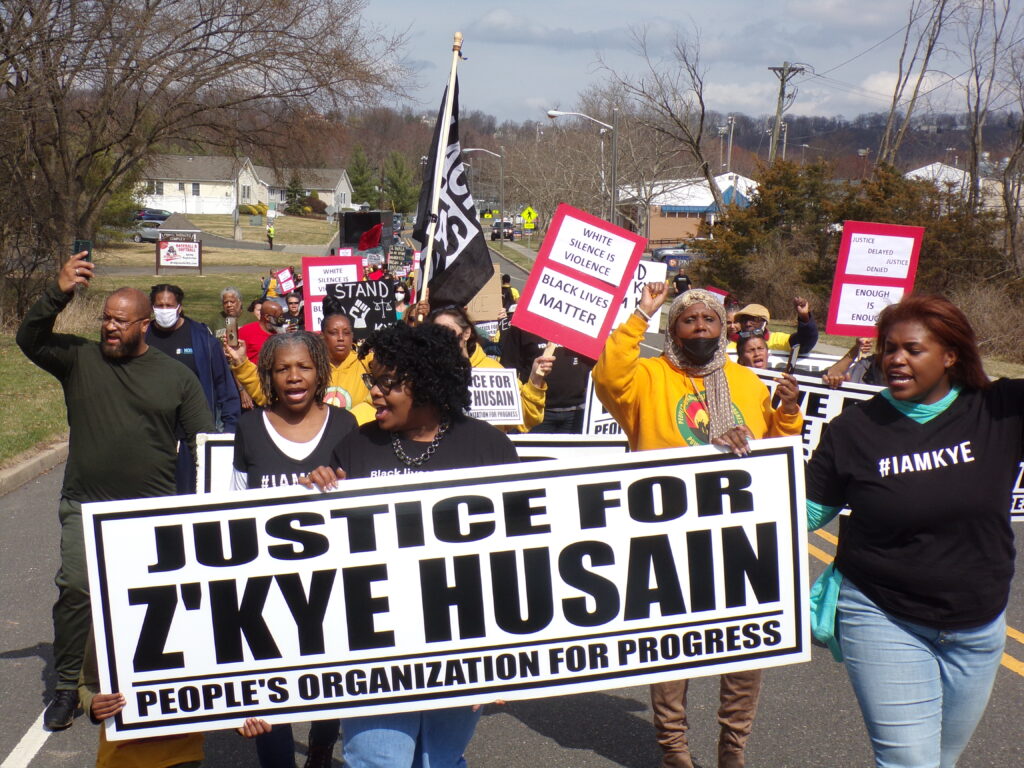
BRIDGEWATER - Ronald C. Rice once described New Jersey as disjointed; its jagged, mismatched ethnic edges frequently drawing the state dangerously close to segregation of a kind that would make the hair of residents in deep red southern states stand on end. But the textured nuances of the state's towns also often surprise - or possess more enduring richness - on closer inspection, and those supposedly "white" burghs, in fact contain longstanding, church-rooted African American communities, with proud, significant local histories, among them the Tennent Road section of Marlboro, the Heath section of Middletown, Princeton's Paul Robeson birthplace, and Bridgewater's Hobbstown.
The last came into sharper focus these last number of weeks as Bridgewater struggled in the aftermath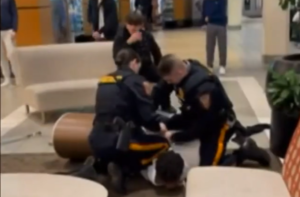 of a nationally publicized mall scrap between a white and black child, which resulted in two responding township police officers cuffing the black child, Z'Kye Husain, and one of the officers holding him down with her knee while leaving the white child uncuffed and unattended. Ensuing outrage over the disparity in the police treatment of the two children prompted members of Z'Kye Husain's family to call for the firing of the officers, and propelled the People's Organization for Progress (POP) led by veteran activist Larry Hamm to go to Bridgewater with a series of reinforcing demands.
of a nationally publicized mall scrap between a white and black child, which resulted in two responding township police officers cuffing the black child, Z'Kye Husain, and one of the officers holding him down with her knee while leaving the white child uncuffed and unattended. Ensuing outrage over the disparity in the police treatment of the two children prompted members of Z'Kye Husain's family to call for the firing of the officers, and propelled the People's Organization for Progress (POP) led by veteran activist Larry Hamm to go to Bridgewater with a series of reinforcing demands.
Inevitably, Hamm found his way to Hobbstown, that proud enclave of Africa Americans who have their own leaders, anchored by Pastor David Hobbs of Macedonia Baptist Church and his cousin Scott Amos Hobbs, a retired Bridgewater Police Officer, both descendants of the former slaves' son who founded the community 100 years ago. Hobbstown has a history that includes the burial ground of Prince Rodgers, a slave; the founding of the church by the Reverend Amos Hobbs; the creation of the Martin Luther King, Jr. Youth Center, which would serve Somerville resident Z'Kye Husain; and the 1960 eminent domain battle, wherein local black leaders successfully fought a plan to drop Highway 287 right through the middle of their neighborhood.
[caption id="attachment_132491" align="alignnone" width="2560"]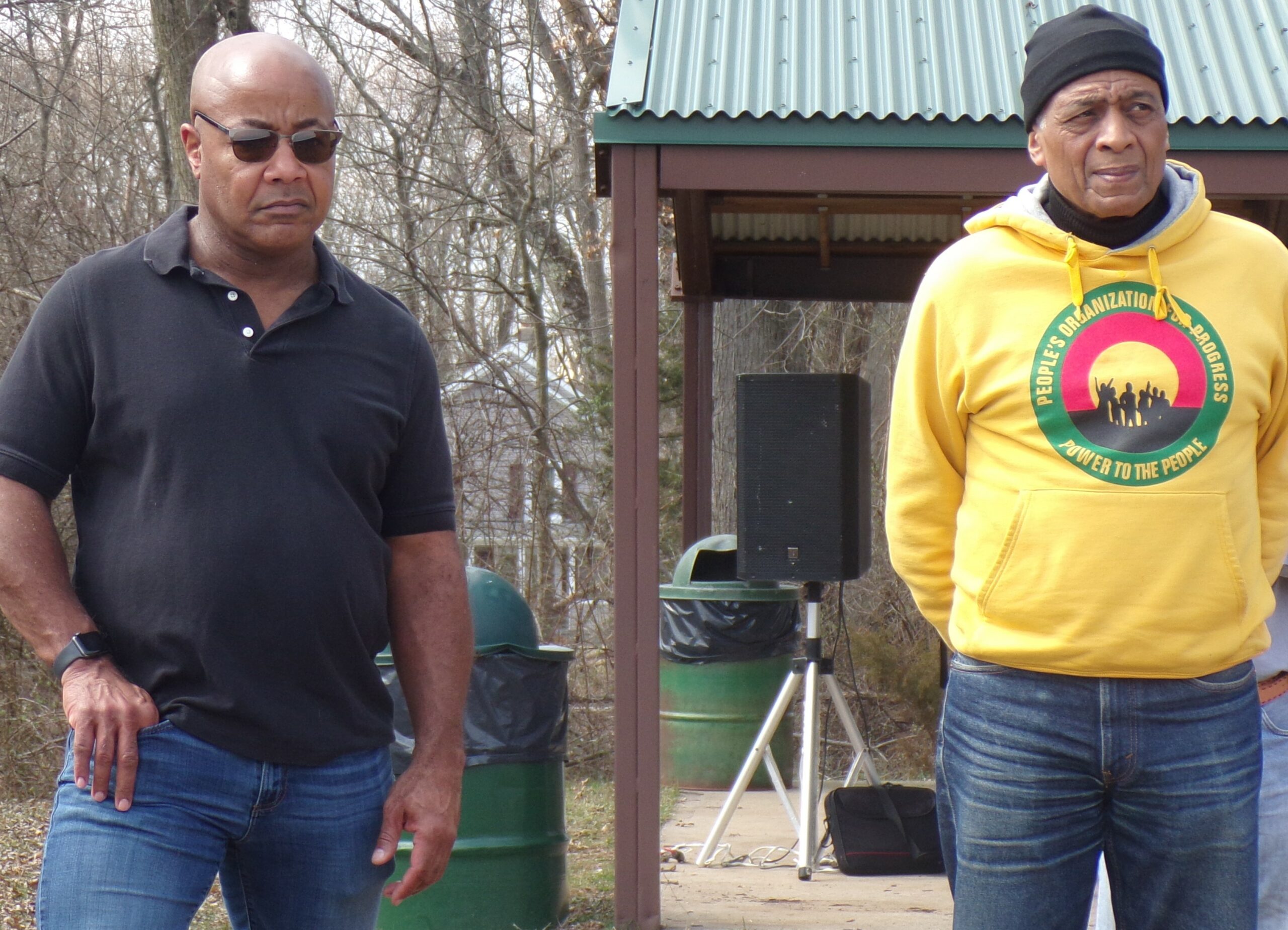 Hobbs and Hamm.[/caption]
Hobbs and Hamm.[/caption]
"That's why the highway's bowed as it runs through Bridgewater," Scott Amos Hobbs told 80 protesters today, who mobilized with Hamm and POP, in a coming together of local and statewide organization forces, from Hobbstown to the mall, with a renewed call of fatigue and outrage, to echo the grandmother of Z'Kye Husain.
It's a world unto itself here, a valley of enduring and sacred history amid corporate towers and the Sodom and Gomorrah centerpiece to this suburban spill-zone otherwise known as the Bridgewater Mall.
"If you look at the [Watchung] Mountains just over there, you'll see why this was an excellent place for our ancestors - who lived off the land - to settle here," Pastor Hobbs told InsiderNJ.
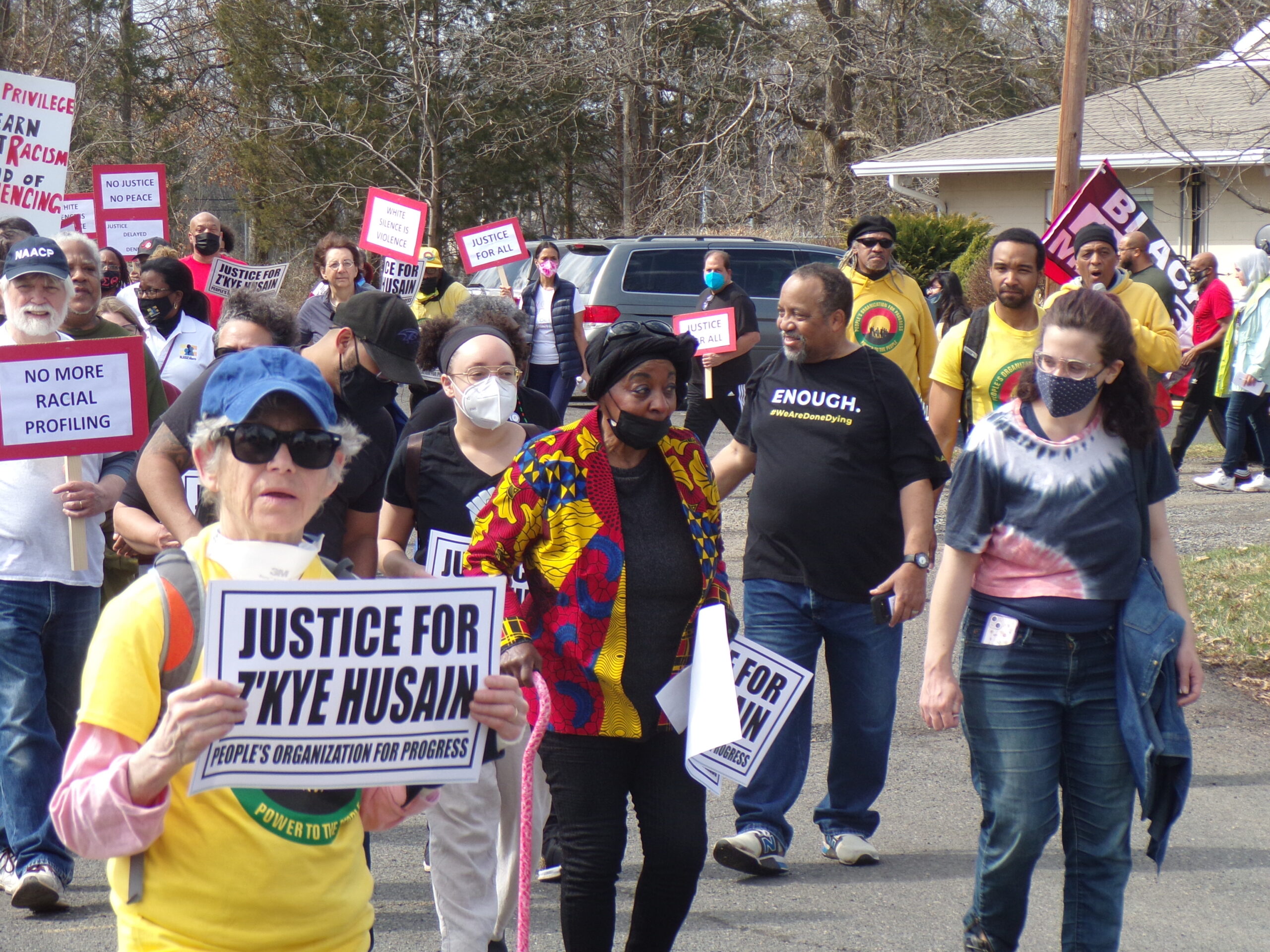
[caption id="attachment_132492" align="alignnone" width="2560"]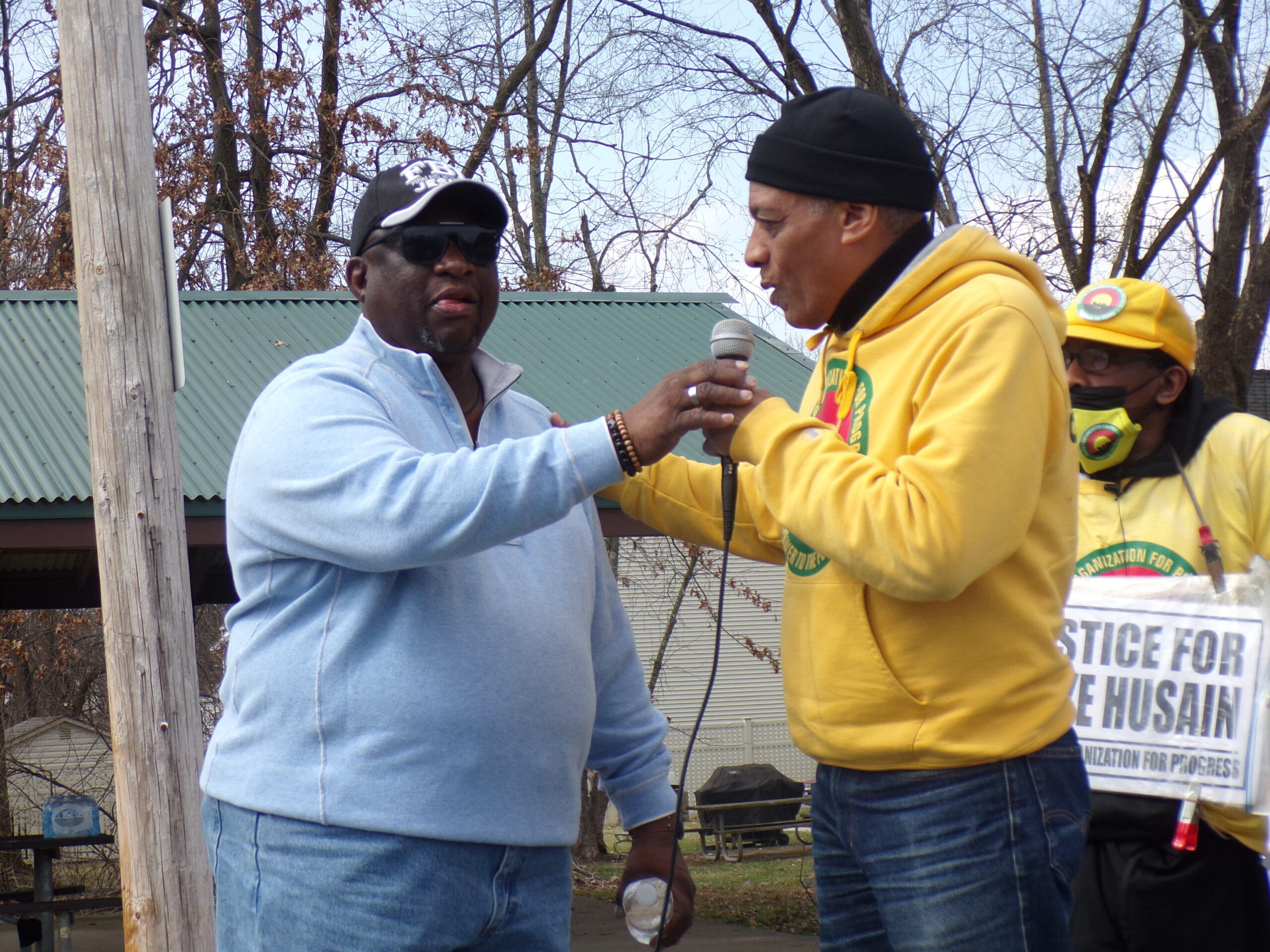 Pastor Hobbs, left.[/caption]
Pastor Hobbs, left.[/caption]
Hamm wanted everyone to know how much he respects Hobbstown, going out of his way to celebrate the community, and its particular traditions, as the Montclair/Newark-based activist continued to press forward on the statewide social justice front.
"I want to thank Pastor Hobbs for opening his arms to us," said Hamm, standing on the basketball court in Hobbstown Park. "When we first came here to Bridgewater, people said to us we need to reach out to the local groups and people in the community. The day we had the last march we came back from the march and we went to the church. It was unfortunate the same day the pastor buried his sister. If I had known, we would not have done it on that day. After the march was over, myself and other members of POP, we came to the Macedonia Baptist Church and the people welcomed us inside and Pastor Hobbs called me up to say a few words, and I stated my apology for the conflict. And I stated that we wanted to work together and from that moment on, Hobbs opened their arms and we've been working together. We want to continue to work together.
"We're marching for respect for Z'Kye and for the community," Hamm said.
The groups involved in the march included the Hobbs Family Union, the NAACP (Vice President Bruce
[caption id="attachment_132498" align="alignleft" width="300"]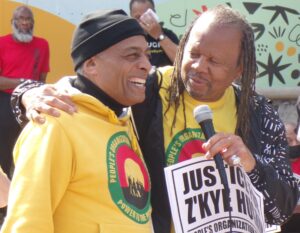 Bill Davis, right.[/caption]
Bill Davis, right.[/caption]
Morgan attended and spoke), the People's Organization for Progress, and the Newark Coalition for Accountable Policing, among others, including Professor Bill Davis of Rutgers University.
"We have to build a movement of all people of conscience," said Hamm, whose roots in the social justice movement go back to the 1967 troubles in his hometown of Newark. "Ultimately all of us are going to have to come together."
He reveled in the history here.
"You are standing on grounds that people have sweated, bled, and died for," Pastor Hobbs told the marchers. "Everything I do, I stand on the shoulders of those who went before me. Imagine what they faced, when they didn't have the backing or the support. They were thinking about us. They were thinking about those coming behind them. Those who came before us did it so we can have a rally to unite because we want respect, and I want the hearts and minds of men and women to be changed.
"Bills passed regulations can be done, but if the hearts and minds are not changed, we'll be doing this over and over and over again," he added.
It seemed like the salient centerpiece of the whole event: the enmeshing of Hamm's social activist ramrodding for real legislative results, with Hobbs' church-based spirituality.
If Hamm continues to agitate in the direction of Trenton, Scott Amos Hobbs, cousin of the pastor, expressed specifically local concerns.
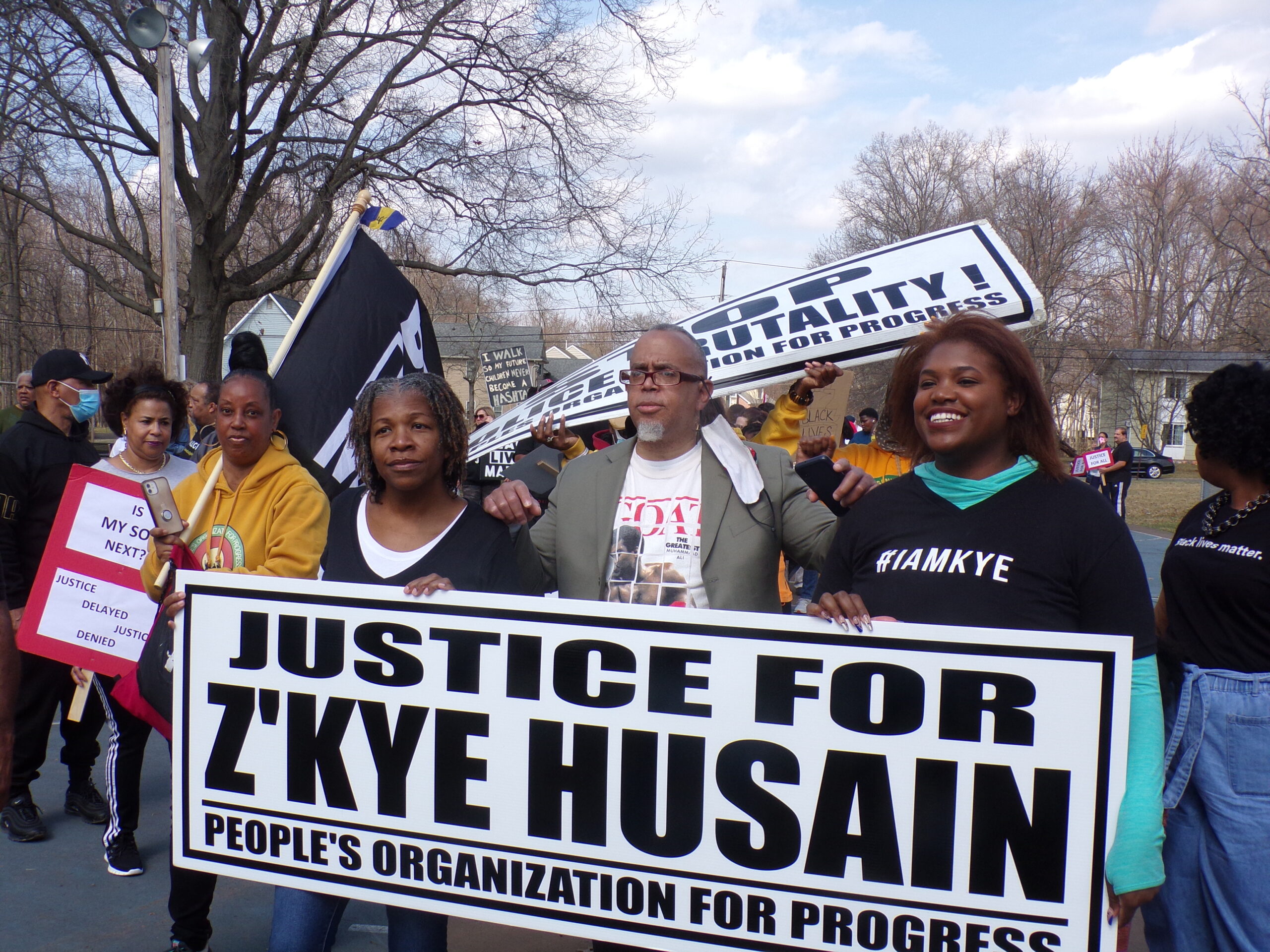
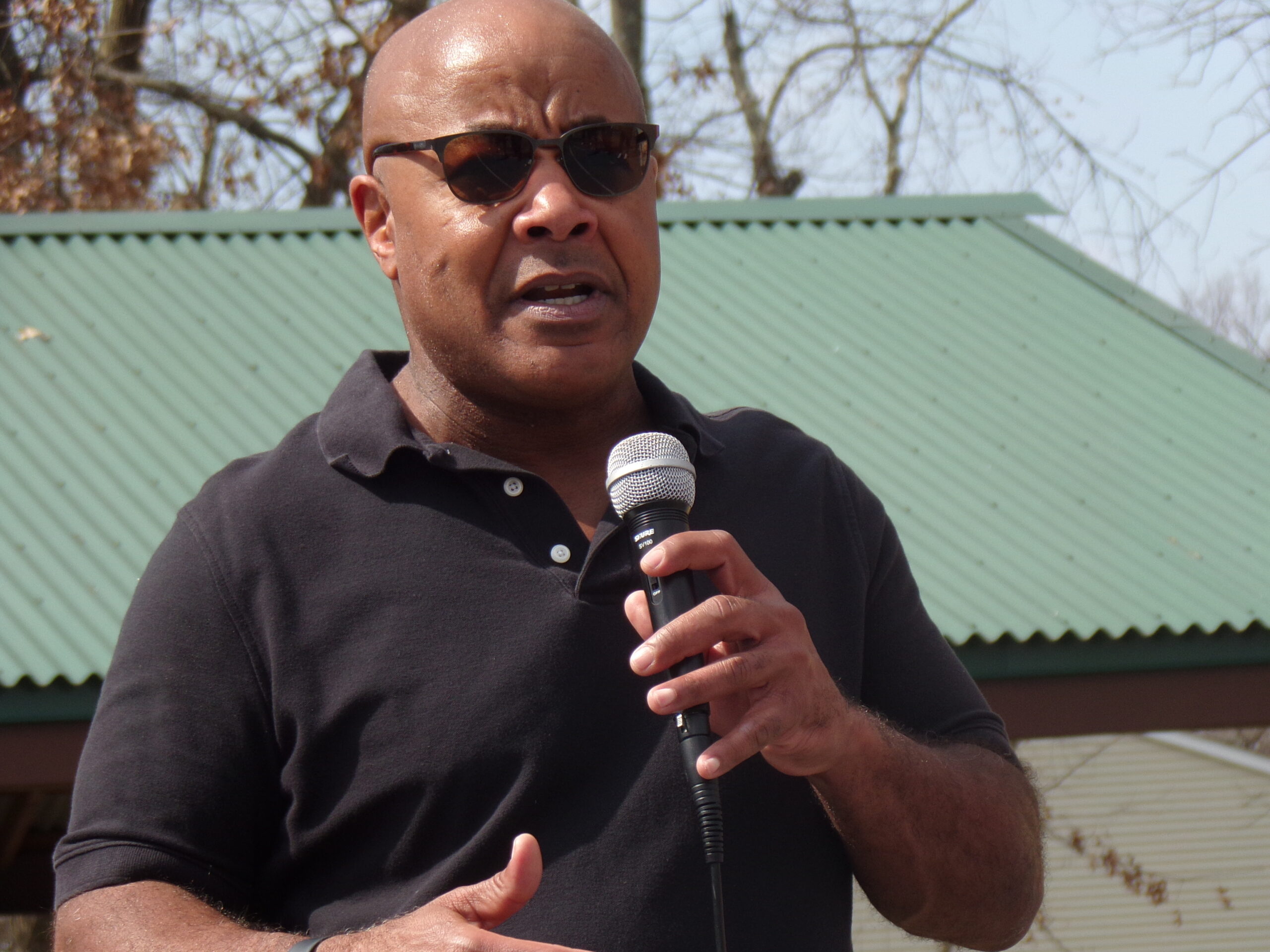
"The purpose of this rally is a lack of respect that has been shown," said Scott Hobbs. "The reason we're saying a lack of respect is the administration has handled this poorly. They were advised to reach out to the black community, and they failed to do that. They decided to put up barricades during the protest. It took two weeks to meet with the local community and the mayor still hasn't acknowledged he had that meeting. I'm a retired police officer, 25 years on the force. By their silence, they have labeled every cop in this town as racist. That's not fair and it's not true. That's the message they let other people dictate. The lack of transparency puts Bridgewater in a bad light, which is far from the truth. I'm active in this community. We've been here for 100 years. Their lack of openness has let other groups like POP drive the narrative."
For the record, Bridgewater Mayor Matt Moench did participate in a private roundtable with local African American leaders, including Pastor Hobbs, and is refraining from making critical comments about the police during an ongoing investigation of the incident by the Somerset Prosecutor's Office.
But as long as government fails to repudiate the actions of the officers in a forceful way, the marchers said they would continue to be in streets.
"Z'Kye Husain was racially profiled and a victim of police brutality," said Hamm. "We want justice for Z'Kye and all the victims. This is not just a Bridgewater problem. This is a statewide problem. This is a national problem. We want an end to racial profiling and police brutality."
[caption id="attachment_132494" align="alignnone" width="2560"]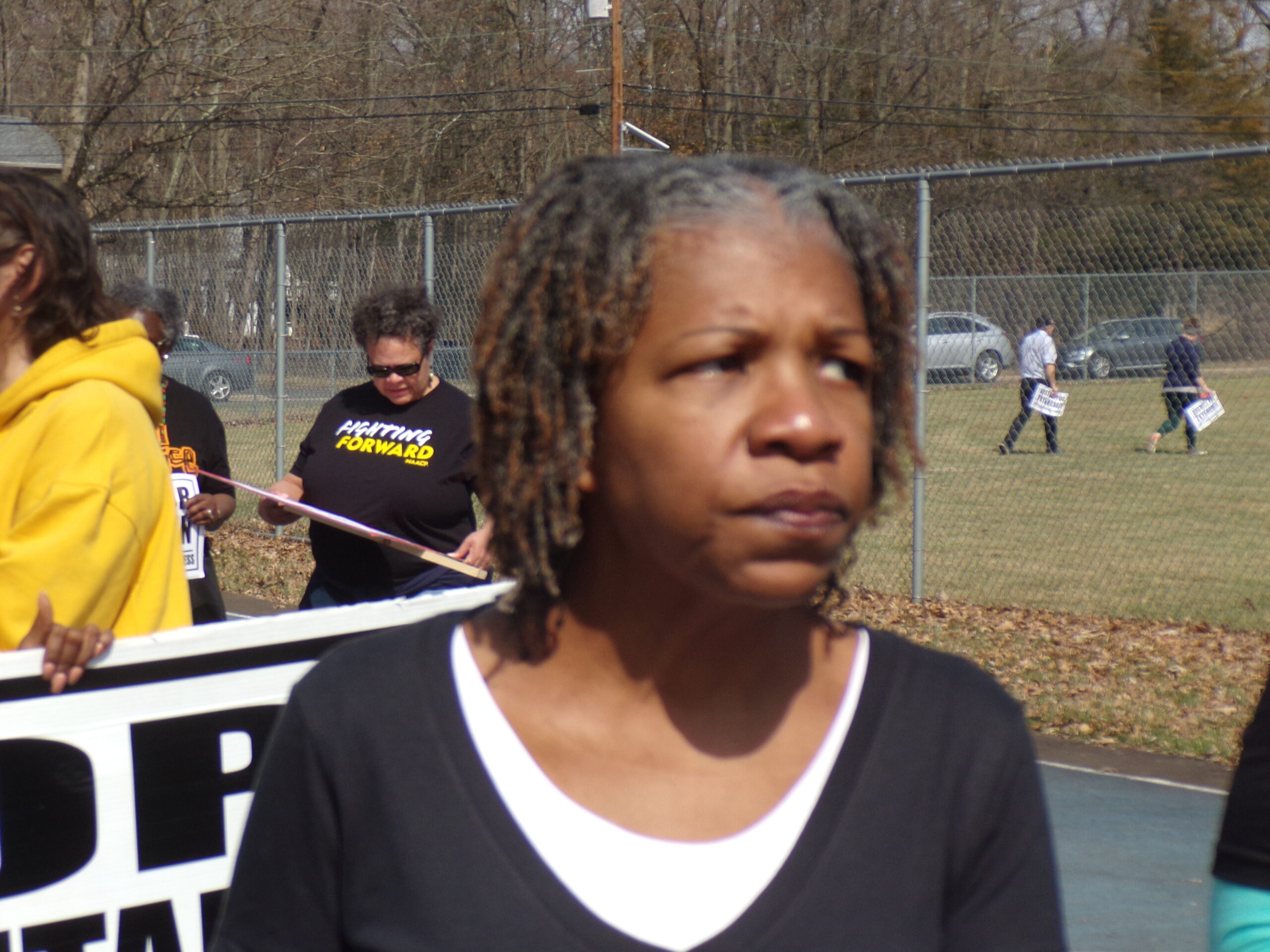 York[/caption]
York[/caption]
At the head of the long line of marchers walked Ernie Simms, aunt of young Z'Kye; and his grandmother, Lori York.
"Unfortunately, this is something that happens all too often," said Simms. "I want to thank everyone, especially POP. They've been there for us, not just in a public light but in a private one. It affects all of us. I'm thankful to God Z'Kye is alive. Someone shouldn't be dead for change to occur."
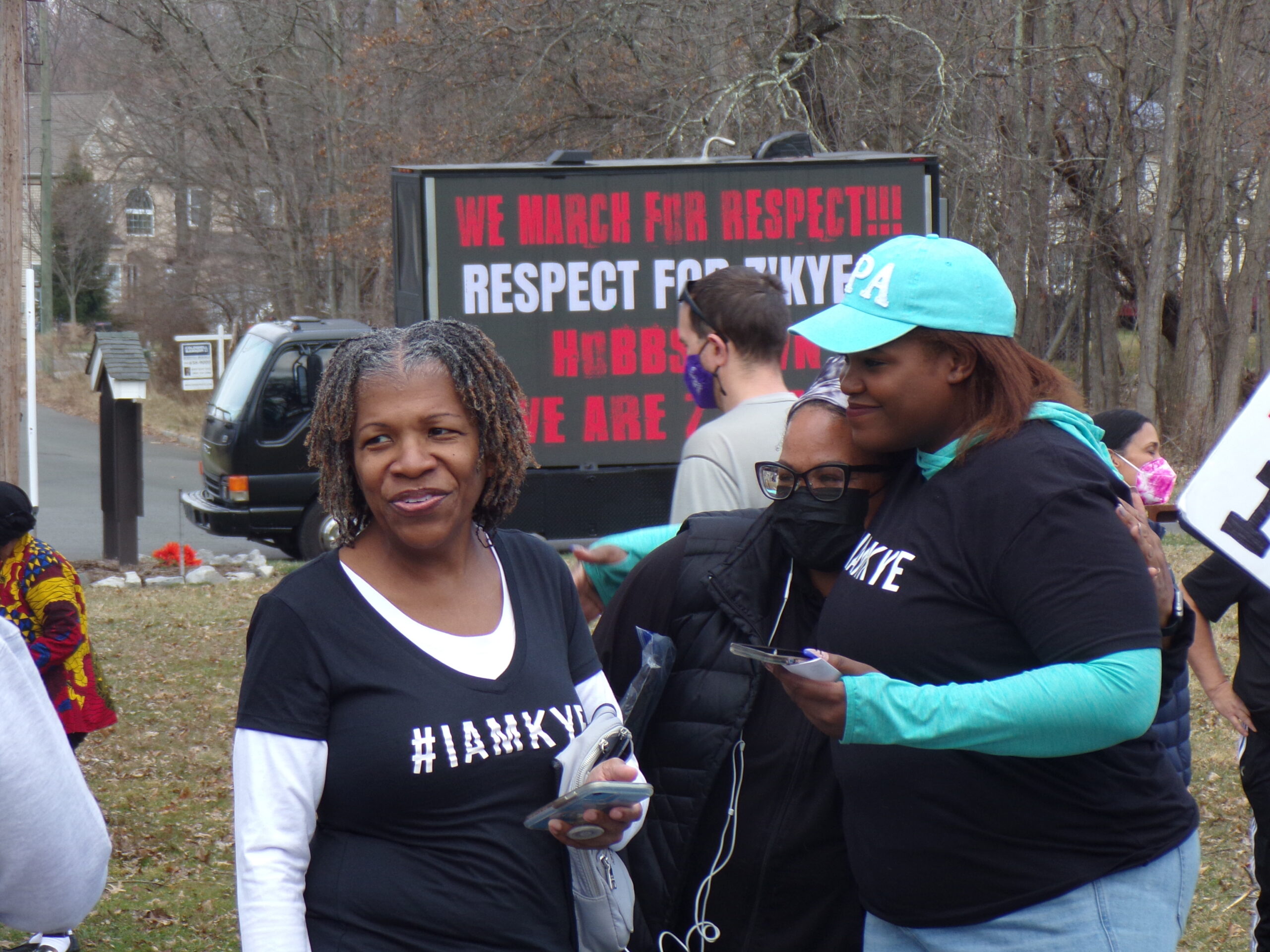
"I still have feelings," said York. "What are we doing about it? Are we here united together? How about after today? All of this has made me think I've been living in a silo. I've been living in a space by myself, because I've gone day to day just trying to make people comfortable. I'm tired. I'm outraged. Seeing my grandson on the ground, the floor, whatever that was, is very contrary to the pictures I have on my cellphone. The vulnerable population. If we don't speak out, who will?"
Zayid Muhammad heads up the Newark Coalition for Accountable Policing.
"We don't come as outsiders but as bearers of solidarity," he told the leaders of Hobbstown. "Let us not be divided over something we need not be divided by."
Muhammad pointed the finger at Democratic Party leadership in Trenton.
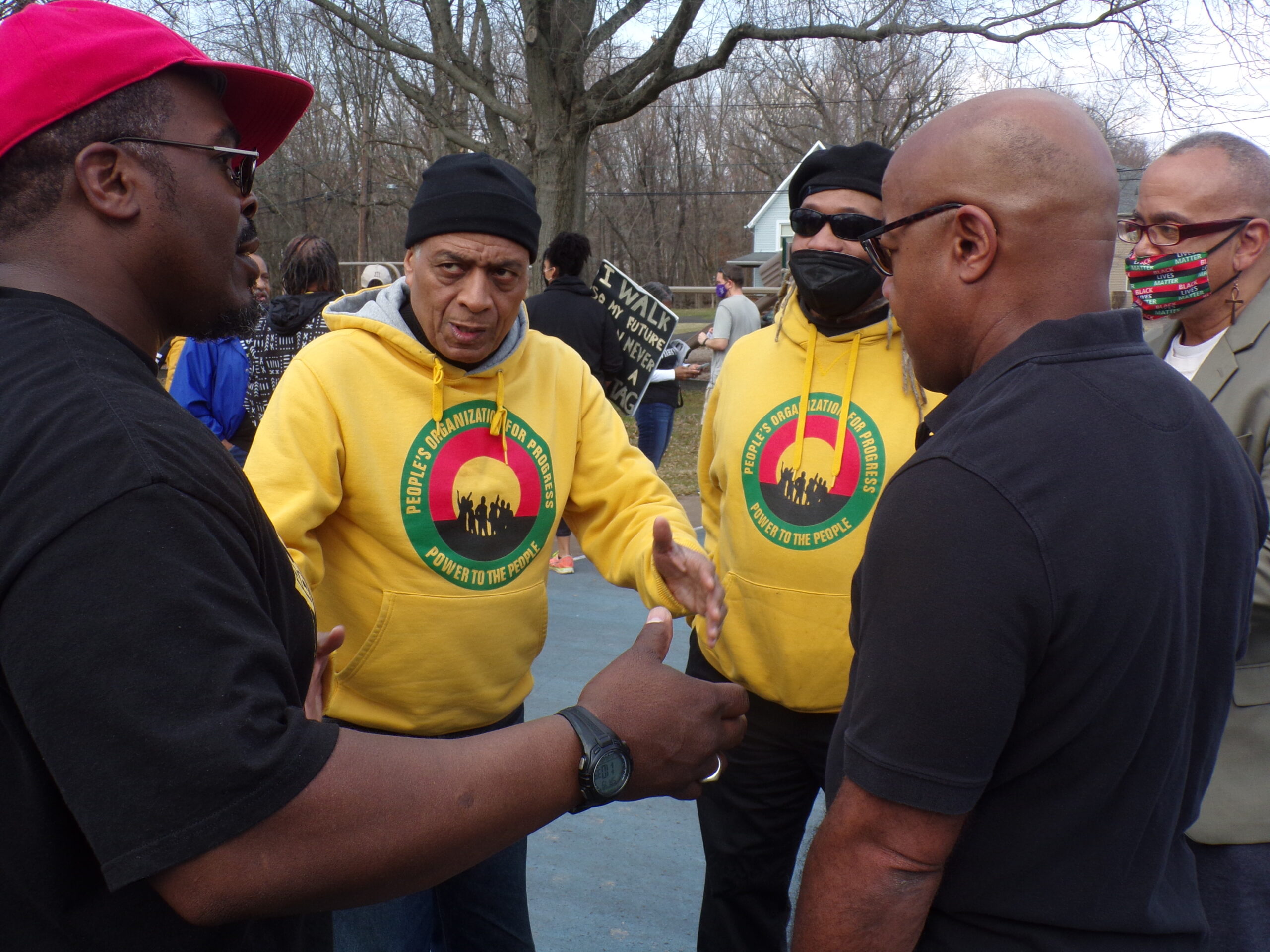
"We are not talking about a Trump-led state. We are not talking about a Christie-led state. The State of New Jersey has yet to deal with police reform," he said. "We're talking about the leadership of the Democratic Party, from the governor's office to the state attorney general to the state legislature. The legislature, they have in their hands something that can change the culture of policing in this state. If they had the courage, they could make other states look to us, particularly by passing and having signed into law the bill that calls for civilian oversight of policing. Civilians are supposed to be in charge of the military. In Newark, Mayor [Ras] Baraka put together the strongest civilian review board possible, and police unions got together and blocked it.
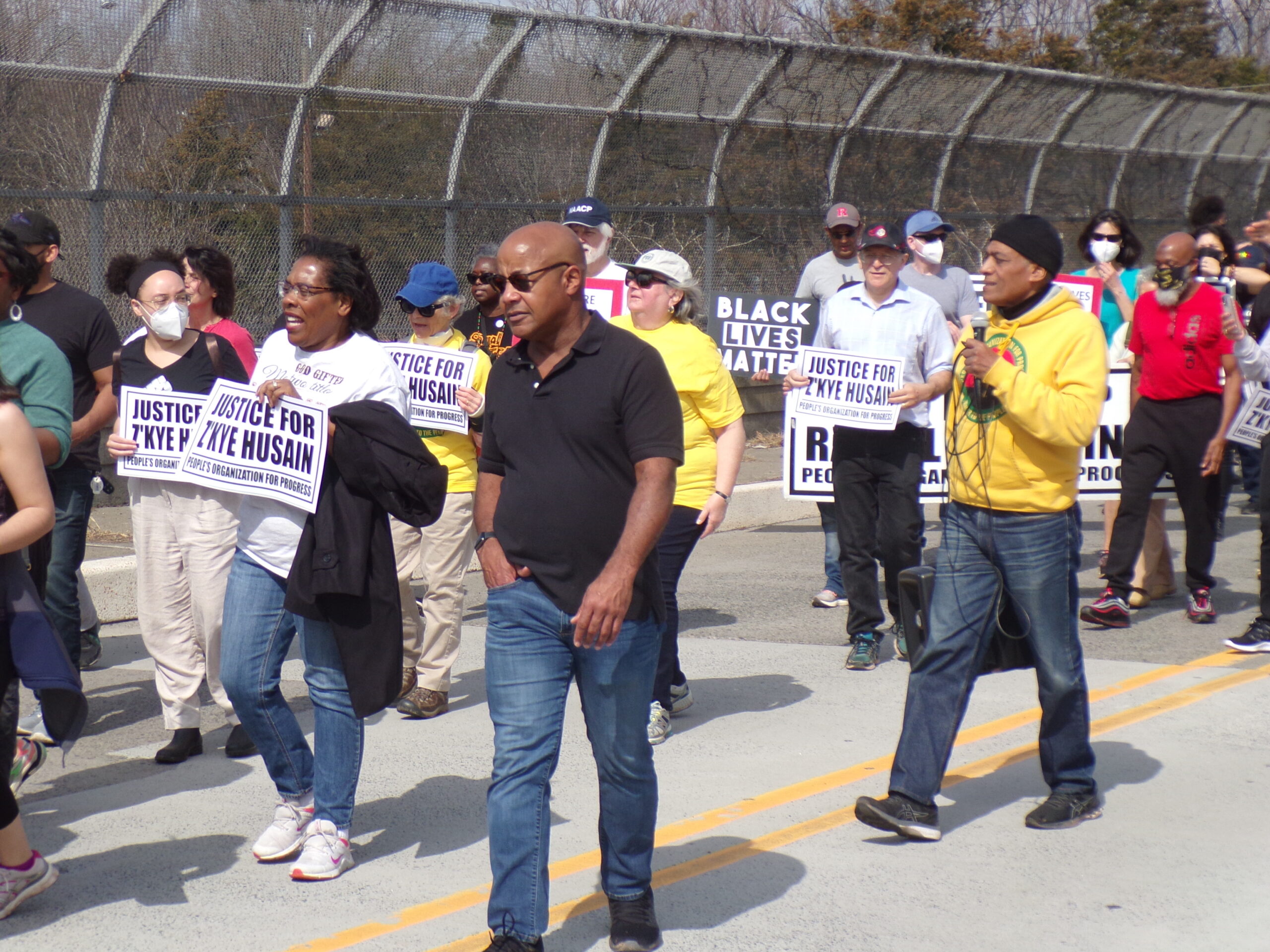
"We're not fighting to lose or a show, we are fighting to win," Muhammad added. "We ain't going nowhere. Our legislature missed a moment. George Floyd gave the whole country a moment for a reckoning. They blew it let us not let them blow it on our watch."
Hamm reiterated his coalition's core demands in the Bridgewater Husain case.
He read them.
They want the officers to be fired.
Names released to the public.
Records released.
Video records released.
The township should do a racial bias audit of policing.
Establish a civilian police review board.
Require additional training.
They want the mayor to issue an apology to Z'Kye Husain, the family, and the black community.
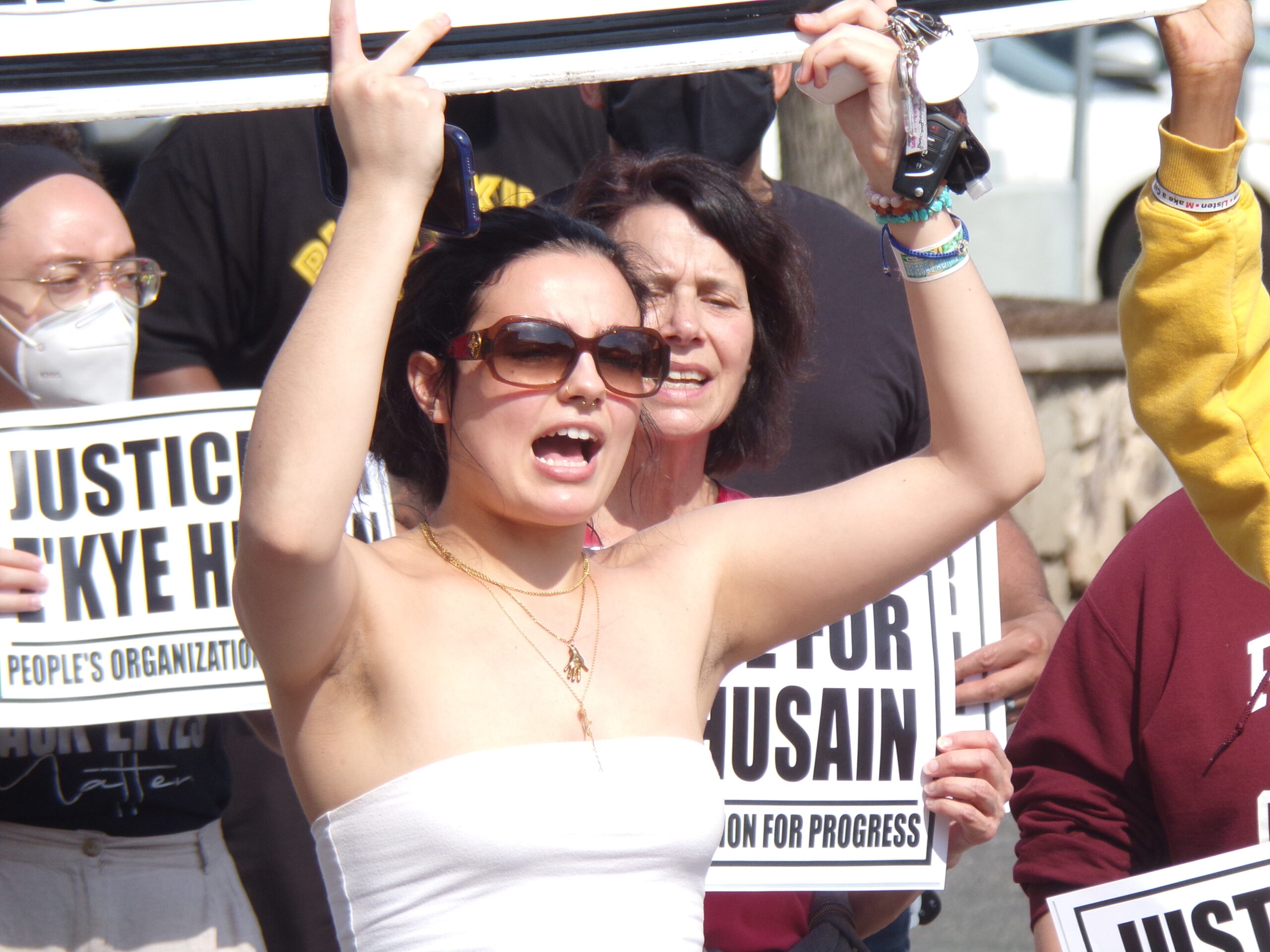
They want the mall to lift its ban on both boys involved in the altercation and withdraw its demand that Z'Kye Husain's family pay for anything.
"We call on the state legislature to pass all of the police reform legislation, especially the civilian complaint review board," said Hamm, who last year spearheaded an historic march to Trenton in an effort to force legislative action. "None of these bills have passed, including the chokehold ban, qualified immunity, public records act, and the civilian complaint. Everyone was marching for justice for George Floyd, but those bills have not been passed. We want those bills passed."
The marchers headed out of Hobbstown and onto Prince Rodgers Avenue, named for the slave buried in town, yelling, "I am Z'Kye. I am Z'Kye."
Traffic blocked by the local PD to let the marchers safely pass, they crossed the highway, rerouted in the 1960's around the African American community. Hamm said, "We're going up the rough side of the mountain now," with the Watchung Mountain range over his shoulders, and on the other side of 287, they walked under trees and into the courtyard entrance of the mall, where diners at Uncle Julio's pulled out their cellphones and filmed them, while others disgorging from inside with brown paper bags under their arms looked on in bewilderment as Hamm chanted, "Don't shop where you're not respected, don't shop where you're not respected, don't shop we're you're not respected," and the crowd returned the chant in kind, and then together made the trudge back to Hobbstown.
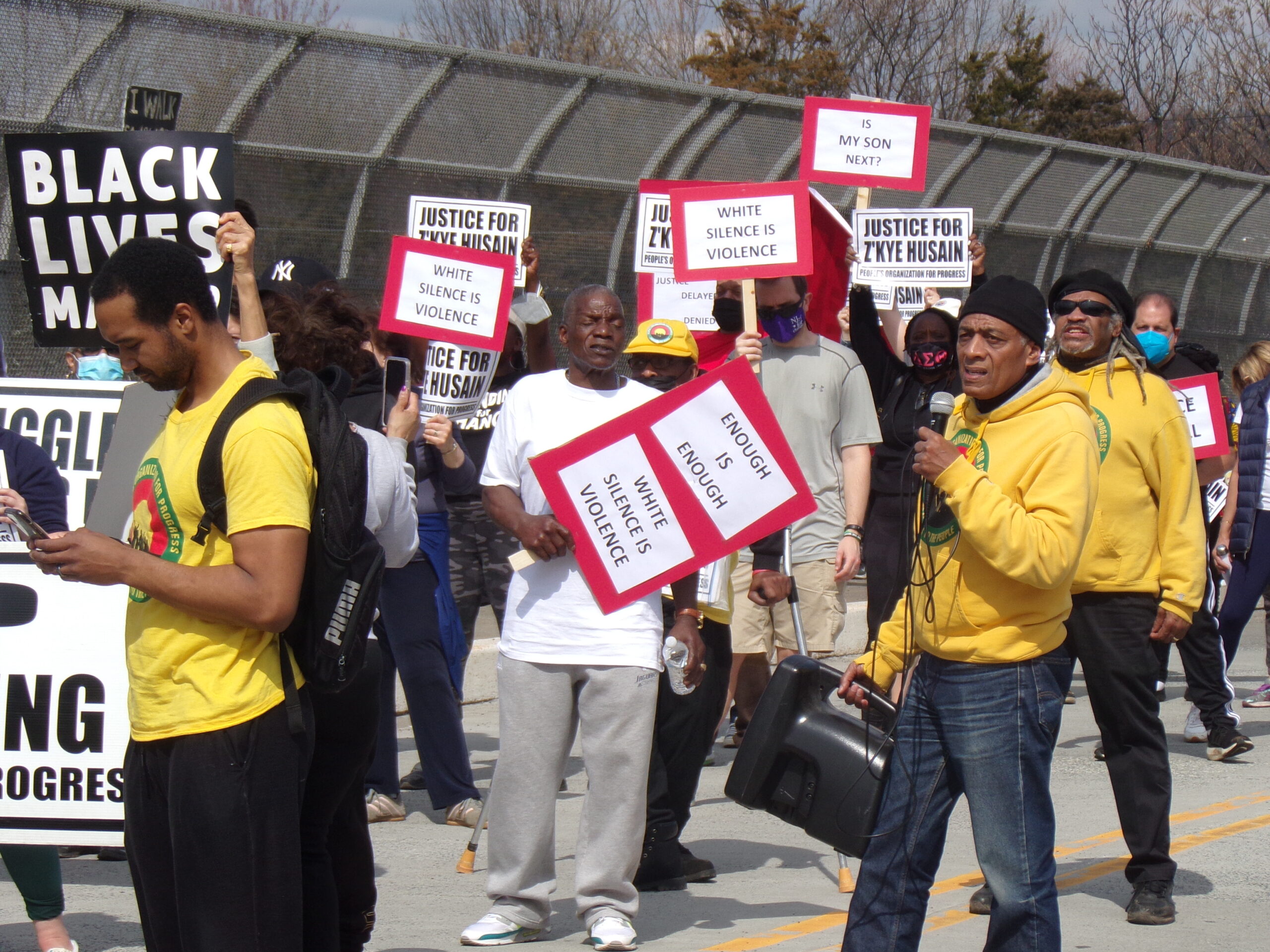
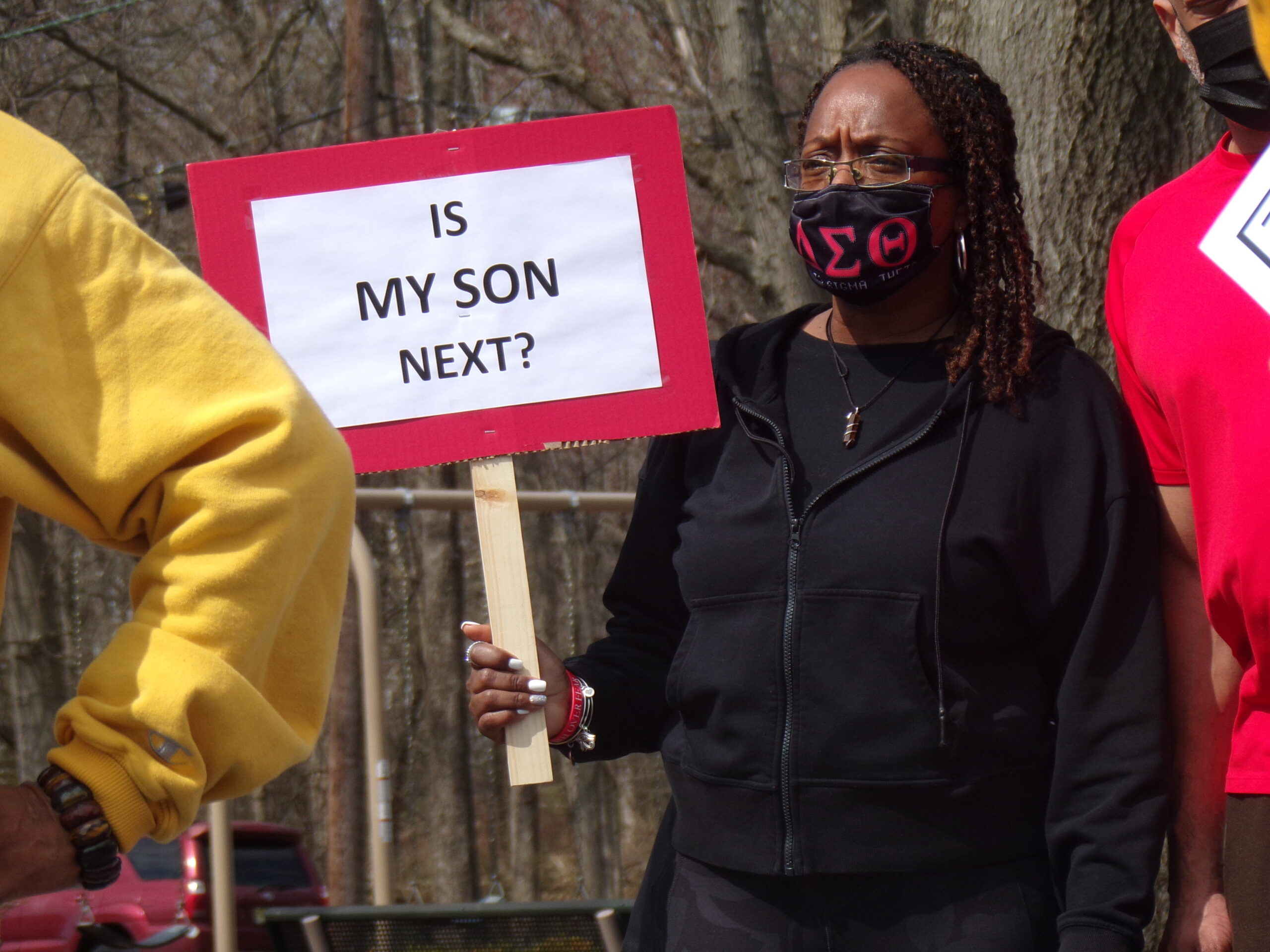
[caption id="attachment_132504" align="alignnone" width="2560"]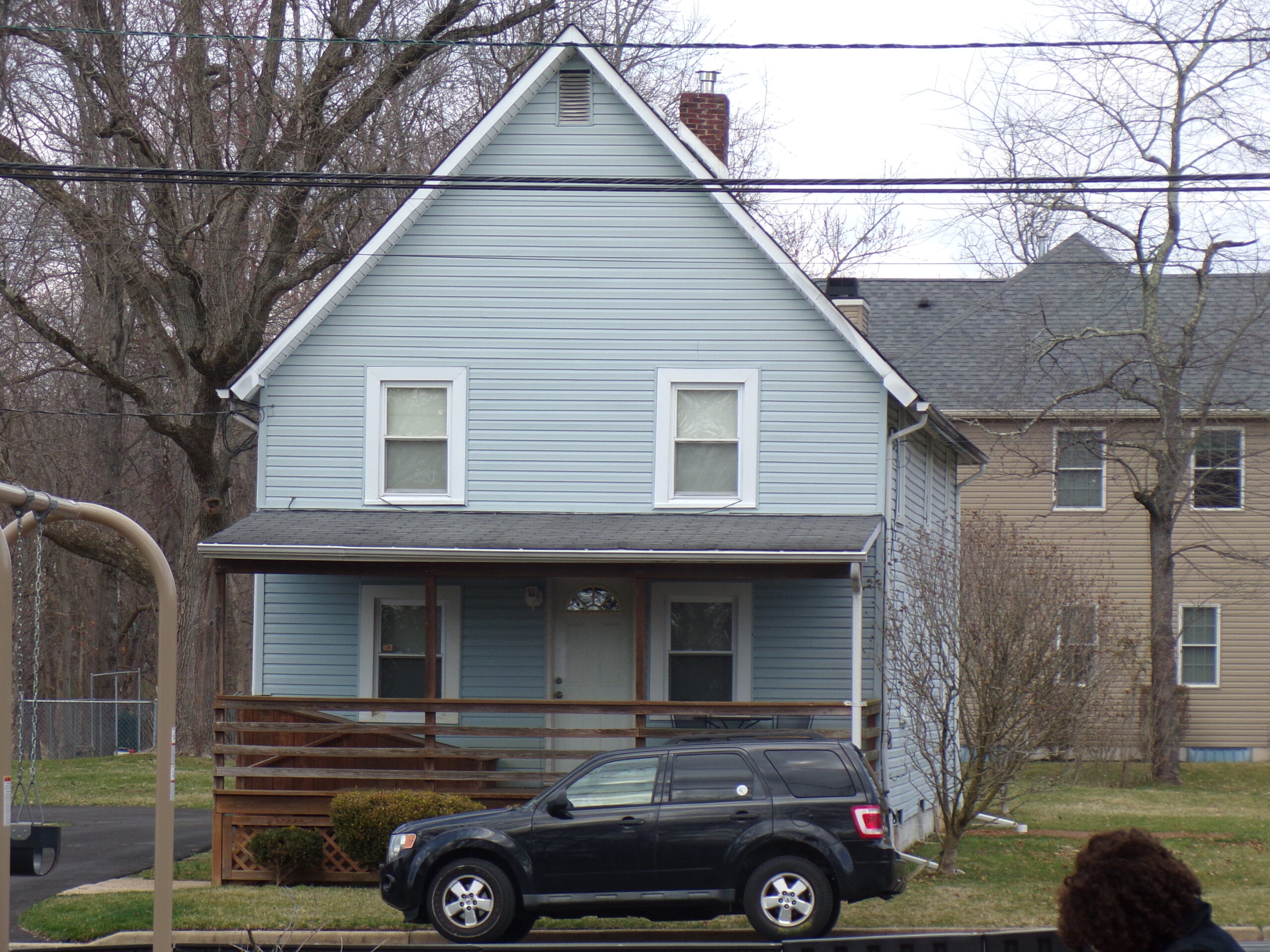 The House the Late Rev. Amos Hobbs built 100 years ago in the section of Bridgewater named for him.[/caption]
The House the Late Rev. Amos Hobbs built 100 years ago in the section of Bridgewater named for him.[/caption]





